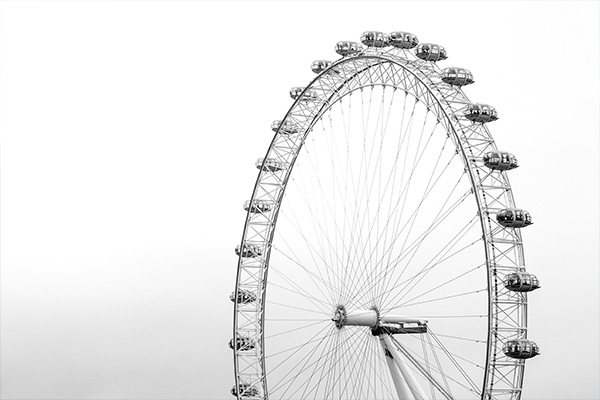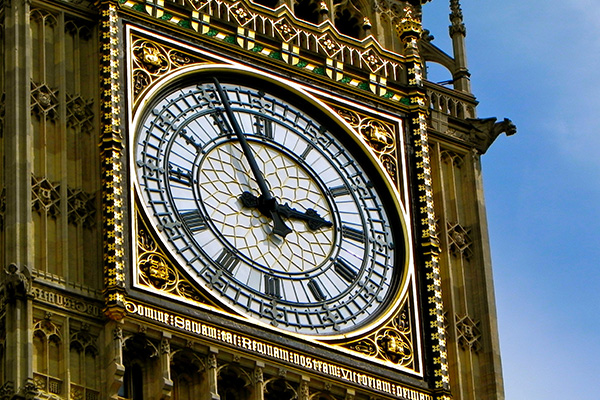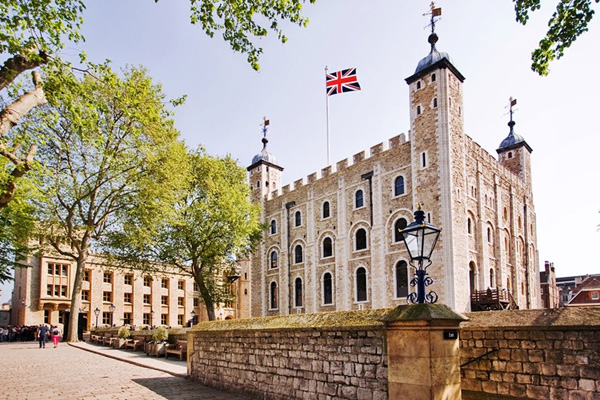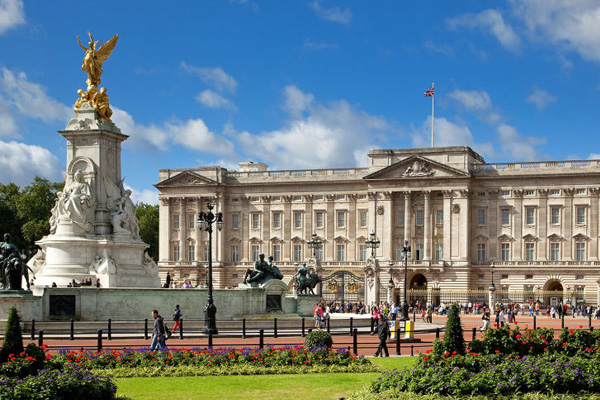Moving ToUnited Kingdom
Points of Interest

LONDON EYE

BIG BEN

TOWER OF LONDON

BUCKINGHAM PALACE
HISTORY
The history of the British Isles has witnessed intermittent periods of competition and cooperation between the people that occupy the various parts of Great Britain, the Isle of Man, Ireland, the Bailiwick of Guernsey, the Bailiwick of Jersey and the smaller adjacent islands, which together make up the British Isles.
Today, the British Isles contain two sovereign states: the Republic of Ireland and the United Kingdom. There are also three Crown dependencies: Guernsey, Jersey and the Isle of Man. The United Kingdom comprises England, Northern Ireland, Scotland, and Wales, each country having its own history, with all but Northern Ireland having been independent states at one point. The history of the formation of the United Kingdom is very complex.
The British monarch was head of state of all of the countries of the British Isles from the Union of the Crowns in 1603 until the enactment of the Republic of Ireland Act in 1949, although the term “British Isles” was not used in 1603. Additionally, since the independence of most of Ireland, historians of the region often avoid the term British Isles due to the complexity of relations between the peoples of the archipelago.
ECONOMY
The economy of the United Kingdom is highly developed and market-oriented. It is the Sixth-largest national economy in the world measured by nominal gross domestic product (GDP), ninth-largest measured by purchasing power parity (PPP), and nineteenth-largest measured by GDP per capita, comprising 3.9% of world GDP. It is the third-largest economy in the European Union after Germany and France.
In 2016, the UK was the tenth-largest goods exporter in the world and the fifth-largest goods importer. It also had the second-largest inward foreign direct investment, and the third-largest outward foreign direct investment. The UK is one of the most globalised economies, and it is composed of (in descending order of size) the economies of England, Scotland, Wales and Northern Ireland.
Government & Politics
Her Majesty’s Government, commonly referred to as the UK government or British government, is the central government of the United Kingdom of Great Britain and Northern Ireland. The government is led by the Prime Minister, who selects all the remaining ministers. The prime minister and the other most senior ministers belong to the supreme decision-making committee, known as the Cabinet. The government ministers all sit in Parliament, and are accountable to it.
The United Kingdom is a unitary state with devolution, that is governed within the framework of a parliamentary democracy under a constitutional monarchy, in which the monarch, currently Queen Elizabeth II, is the head of state while the prime minister of the United Kingdom, currently Theresa May, is the head of government. Executive power is exercised by the British government, on behalf of and by the consent of the monarch, as well as by the devolved governments of Scotland and Wales, and the Northern Ireland Executive. Legislative power is vested in the two chambers of the Parliament of the United Kingdom, the House of Commons and the House of Lords, as well as in the Scottish parliament and Welsh and Northern Ireland assemblies. The judiciary is independent of the executive and the legislature. The highest court is the Supreme Court of the United Kingdom.
Geography
The United Kingdom is a sovereign state located off the north-western coast of continental Europe. The UK lies between the North Atlantic and the North Sea, and comes within 35 km (22 mi) of the north-west coast of France, from which it is separated by the English Channel. It shares a 499 km international land boundary with the Republic of Ireland. The Channel Tunnel bored beneath the English Channel, now links the UK with France.
Start your journey today!
Culture

Arts
VISUAL ARTS
The history of British visual art forms part of western art history. Major British artists include: the Romantics William Blake, John Constable, Samuel Palmer and J.M.W. Turner; the portrait painters Sir Joshua Reynolds and Lucian Freud; the landscape artists Thomas Gainsborough and L. S. Lowry; the pioneer of the Arts and Crafts Movement William Morris; the figurative painter Francis Bacon; the Pop artists Peter Blake, Richard Hamilton and David Hockney; the collaborative duo Gilbert and George; the abstract artist Howard Hodgkin; and the sculptors Antony Gormley, Anish Kapoor and Henry Moore.
LITERATURE
The English playwright and poet William Shakespeare is widely regarded as the greatest dramatist of all time. 20th century English writers include the science-fiction novelist H. G. Wells; the writers of children’s classics Rudyard Kipling, A. A. Milne (the creator of Winnie-the-Pooh), Roald Dahl and Enid Blyton; the controversial D. H. Lawrence; the modernist Virginia Woolf; the satirist Evelyn Waugh; the prophetic novelist George Orwell; the popular novelists W. Somerset Maugham and Graham Greene; the crime writer Agatha Christie (the best-selling novelist of all time); Ian Fleming (the creator of James Bond); the poets T.S. Eliot, Philip Larkin and Ted Hughes; the fantasy writers J. R. R. Tolkien, C. S. Lewis and UK’s best selling author of the 21st century J. K. Rowling,
FILM
The United Kingdom has had a considerable influence on the history of the cinema. The British directors Alfred Hitchcock, whose film Vertigo is considered by some critics as the best film of all time, and David Lean are among the most critically acclaimed of all-time. Other important directors including Charlie Chaplin, Michael Powell, Carol Reed, Edgar Wright, Christopher Nolan, and Ridley Scott. Many British actors have achieved international fame and critical success, including: Julie Andrews, Richard Burton, Michael Caine, Colin Firth, Gary Oldman, Ben Kingsley, Ian McKellen, Liam Neeson, Charlie Chaplin, Sean Connery, Vivien Leigh, David Niven, Laurence Olivier, Peter Sellers, Kate Winslet, Anthony Hopkins, and Daniel Day-Lewis. Some of the most commercially successful films of all time have been produced in the United Kingdom, including two of the highest-grossing film franchises (Harry Potter and James Bond). Ealing Studios has a claim to being the oldest continuously working film studio in the world.
MUSIC
Throughout its history, the United Kingdom has been a major producer and source of musical creation, drawing its artistic basis from the history of the United Kingdom, from church music, Western culture and the ancient and traditional folk music and instrumentation of England, Scotland, Ireland and Wales. The United Kingdom has one of the world’s largest music industries today, with many British musicians having influenced modern music.
The Beatles have international sales of over one billion units and are the biggest-selling and most influential band in the history of popular music. Other prominent British contributors to have influenced popular music over the last 50 years include The Rolling Stones, Pink Floyd, Queen, Led Zeppelin, the Bee Gees, and Elton John, all of whom have worldwide record sales of 200 million or more. The Brit Awards are the BPI’s annual music awards, and some of the British recipients of the Outstanding Contribution to Music award include; The Who, David Bowie, Eric Clapton, Rod Stewart and The Police. More recent UK music acts that have had international success include Coldplay, Radiohead, Oasis, Arctic Monkeys, Spice Girls, Robbie Williams, Amy Winehouse and Adele.

Media
The BBC, founded in 1922, is the UK’s publicly funded radio, television and Internet broadcasting corporation, and is the oldest and largest broadcaster in the world. It operates numerous television and radio stations in the UK and abroad and its domestic services are funded by the television licence. Other major players in the UK media include ITV plc, which operates 11 of the 15 regional television broadcasters that make up the ITV Network, and News Corporation, which owns a number of national newspapers through News International such as the most popular tabloid The Sun and the longest-established daily “broadsheet” The Times, as well as holding a large stake in satellite broadcaster British Sky Broadcasting.

Cuisine
British cuisine has been described as “unfussy dishes made with quality local ingredients, matched with simple sauces to accentuate flavour, rather than disguise it”.[1] However, British cuisine has absorbed the cultural influence of those who have settled in Britain, producing many hybrid dishes, such as the Anglo-Indian chicken tikka masala
Well-known traditional British dishes include full breakfast, fish and chips, the Christmas dinner, the Sunday roast, steak and kidney pie, shepherd’s pie, and bangers and mash. People in Britain however eat a wide variety of foods based on the cuisines of Europe, India, and other parts of the world. British cuisine has many regional varieties within the broader categories of English, Scottish and Welsh cuisine and Northern Irish cuisine. Each has developed its own regional or local dishes, many of which are geographically indicated foods such as Cornish pasties, the Yorkshire pudding, Cumberland Sausage, Arbroath Smokie, and Welsh cakes.

Sports & Recreations
Major sports, including association football, tennis, rugby union, rugby league, golf, boxing, netball, rowing and cricket, originated or were substantially developed in the UK and the states that preceded it. With the rules and codes of many modern sports invented and codified in late 19th century Victorian Britain, in 2012, the President of the IOC, Jacques Rogge, stated; “This great, sports-loving country is widely recognised as the birthplace of modern sport. It was here that the concepts of sportsmanship and fair play were first codified into clear rules and regulations. It was here that sport was included as an educational tool in the school curriculum”.
Overall, association football attracts the most viewers and money though the nation is notable for the diversity of its sporting interests, especially at the elite level. Major individual sports include athletics, golf, cycling, motorsport, and horse racing. Tennis is the highest profile sport for the two weeks of the Wimbledon Championships, but otherwise struggles to hold its own in the country of its birth. Snooker and Darts, too, enjoy period profile boosts in line with the holding of their largest events. Many other sports are also played and followed to a lesser degree. There is much debate over which sport has the most active participants with swimming, athletics, cycling all found to have wider active participation than association football in the 2010 Sport England Active People survey
















